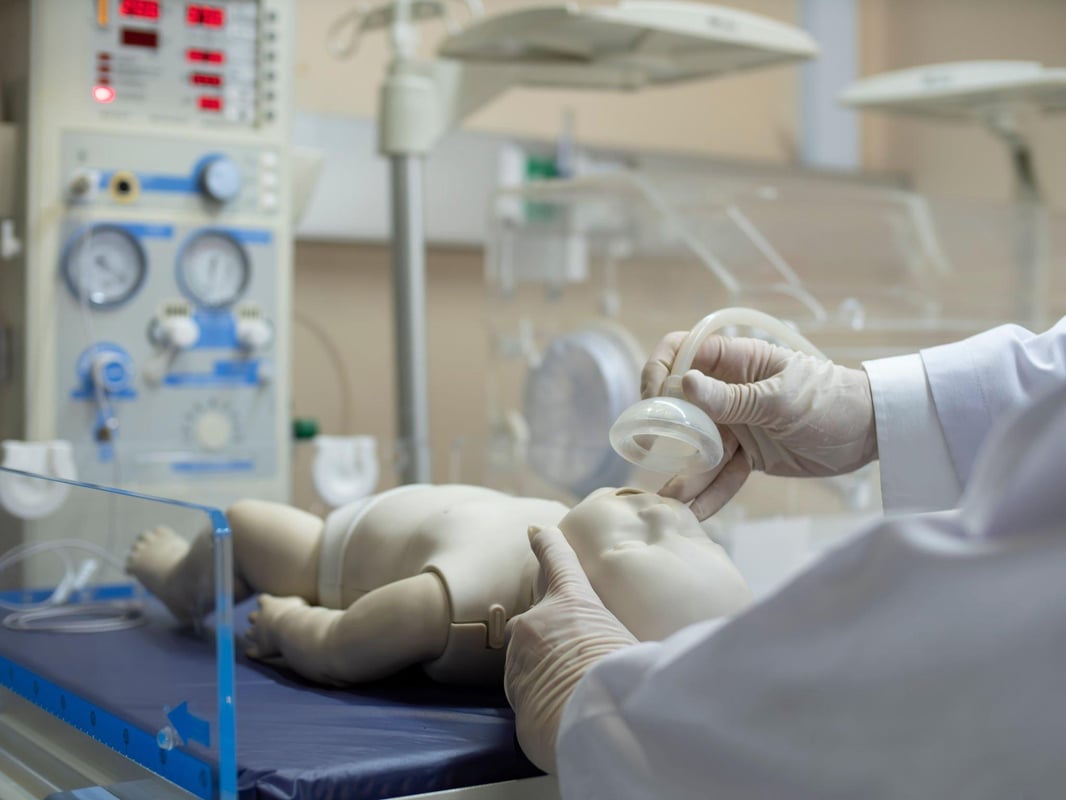
Financial aid (may be available)

Financial aid (may be available)

Financial aid (may be available)

Financial aid (may be available)
$276 total
$2,075 total
$270 total
$410 total
$365 total
$150 total
No cost info
$285 total
$150 total
No cost info
If you're interested in Pediatric Advanced Life Support (PALS), you've come to the right place. PALS is a vital certification for anyone in the healthcare industry who cares for children. In this blog post, we will explore what PALS is, its training requirements, what to look for in a class, what to expect from day-to-day classes, and the certification process. We'll also provide guidance on finding related jobs and additional classes you can take after becoming PALS certified.

Pediatric Advanced Life Support is a certification that equips healthcare professionals with the knowledge and skills needed to make crucial decisions in emergency and critical care situations involving infants and children. It teaches the treatment and management of cardiovascular emergencies and other life-threatening situations.
Before enrolling in a PALS class, there are a few prerequisites you should be aware of:
Basic Life Support (BLS) certification: This is a requirement for most PALS classes, as PALS training builds on the skills learned in BLS.
ECG rhythm identification knowledge: PALS training involves understanding and interpreting EKG readings, so prior knowledge in this area is essential.
Basic understanding of pediatric treatment modalities: While PALS training will cover this, having a fundamental understanding will help you get the most out of your class.
When seeking a PALS class, consider the following aspects:
Accreditation: Ensure the class is accredited by a recognized body such as the American Heart Association (AHA) or Red Cross.
Course content: The course should cover all necessary topics, including pediatric emergency assessment, treatment algorithms, effective resuscitation, and team dynamics.
Hands-on training: The class should provide plenty of opportunities for practical application of the skills taught.
Day-to-day PALS classes typically involve a combination of theoretical learning and practical application. Heres what you can expect:
Lectures: These cover essential knowledge on pediatric emergency care.
Hands-on training: This includes practising skills such as CPR on child and infant mannequins, using defibrillators, and administering medication.
The PALS certification process typically involves the following steps:
Course completion: Attend all classes and complete all coursework.
Written exam: A written test usually covers the theory aspect of the training.
Skills assessment: This practical test assesses your ability to apply PALS techniques in a simulated pediatric emergency.
Certification: Successful candidates receive their PALS certification, which is typically valid for two years.
After becoming PALS certified, you can explore various job opportunities in the healthcare field. Some of these include:
Pediatric Nurse
Pediatric Emergency Room Nurse
Paramedic
Respiratory Therapist
You can find these opportunities on various job boards and healthcare-specific job sites. Networking with other healthcare professionals can also lead to job opportunities.
Once you've attained your PALS certification, there are other courses you can take to further enhance your skills and expertise. Some of these include:
Advanced Cardiovascular Life Support (ACLS): This course builds on the skills learned in PALS and BLS, focusing on adults' emergency cardiovascular care.
Neonatal Resuscitation Program (NRP): This program focuses on the care of newborns at the time of delivery.
In North Carolina, PALS plays an essential role in ensuring healthcare professionals are equipped to provide lifesaving care for children in emergency situations. Many hospitals, clinics, and emergency services in Greensboro and throughout North Carolina require their staff to hold PALS certification.
PALS certification is typically valid for two years. After this period, you will need to take a refresher course and pass an exam to maintain your certification. Refresher courses are a great opportunity to update your skills and stay abreast of any changes in pediatric emergency care protocols.
PALS certification can be a valuable addition to your resume if you're pursuing a career in healthcare. It's particularly relevant for roles that involve working with children, such as pediatric nursing or pediatric emergency medicine. It's also beneficial for roles that require emergency care skills, such as paramedics and emergency room nurses.
PALS certification is an excellent way to enhance your healthcare career. Not only does it provide you with vital skills to save lives, but it also makes you more attractive to potential employers. Whether you're in Greensboro or elsewhere in North Carolina, there are numerous accredited PALS classes available to help you reach your career goals. As always, do your research and choose a class that best fits your needs and career aspirations.
Check out Dreambound's extensive guides focusing on the unique challenges and requirements for each city in the US. For more detailed information, see some of our other guides below.
Exploring diverse professional options? Dreambound has comprehensive guides to assist you in making well-informed decisions. Take a look at these resources:
Dreambound's platform allows prospective students to find the right educational program for them through searching, filtering, and connecting with our extensive selection of career & technical education partners.
Dreambound has over 70 programs across healthcare, technology, business, and industrial trades. This includes programs such as Medical Billing, Cybersecurity, and welding.
Some of our schools offer financial aid for those who qualify. Many others offer payment plans, where you can pay the cost of class over time.
Yes, Dreambound offers many online programs. On Dreambound's search, you can filter by online, in-person, and hybrid (part online, part in-person).
Dreambound is completely free for you to use! We are supported by schools and organizations who pay to advertise on our website, so we can offer all of our career resources for free.